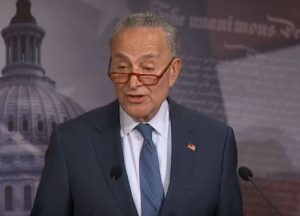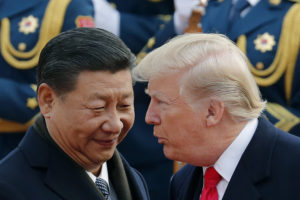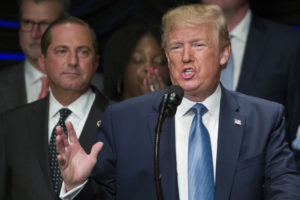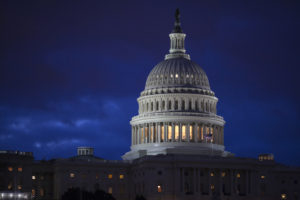Over 20 White House Employees Have Talked to Mueller, Lawyer Says
The number of interviewees, including eight people from the White House counsel's office, suggests the breadth of Mueller's investigation into Russian election interference.WASHINGTON — More than 20 White House employees have given interviews to special counsel Robert Mueller in his investigation into possible Trump campaign ties to Russian election interference and obstruction of justice, according to a document released Thursday President Donald Trump’s attorney John Dowd.
The details highlight what the White House calls its unprecedented cooperation with Mueller’s investigation, including that it has turned over more than 20,000 pages of documents. The president’s 2016 campaign has turned over more than 1.4 million pages.
However, the number of interviews also suggests the breadth of Mueller’s work so far. The interviewees include eight people from the White House counsel’s office.
Dowd’s document emphasizes that they gave the interviews voluntarily.
Dowd released his list of Trump cooperation a day after the president himself said he was looking forward to being questioned by Mueller’s team. Ground rules for that encounter’s content and setting are still being negotiated, but Trump said Wednesday it could occur as soon as in two or three weeks.
Separately, texts of interviews held behind closed doors in separate congressional investigations into Russian meddling could soon become public. Those could include the president’s elder son, Donald Jr.
Chuck Grassley of Iowa, chairman of the Senate Judiciary Committee, said Thursday he will work with the panel’s top Democrat, Dianne Feinstein of California, to release the transcripts of interviews with Donald Trump Jr. and others who attended a June 2016 meeting between campaign officials and Russians at Trump Tower in New York.
Grassley said the part of the panel’s investigation looking into that episode is finishing, “so now it’s time to start officially releasing the transcripts of all witness interviews we have done related to that meeting. Let’s get them out there for everyone to see.”
Feinstein said she agrees the transcripts should be released to the public if that doesn’t interfere with the panel’s investigation. She also said she thinks they should be turned over to Mueller.
The rare bipartisan move brings the focus, at least momentarily, back to the initial subject of several different congressional investigations into Russian meddling in the 2016 elections and whether Trump’s campaign was involved. In recent weeks, many Republicans have pivoted to instead focus on whether the FBI conspired against Trump when it began investigating the campaign, citing anti-Trump texts between two Justice Department officials who were at one point part of special counsel Mueller’s investigation.
Trying to stem some of that criticism, the Justice Department’s internal watchdog said Thursday that it had located several months’ worth of text messages the department had previously said it couldn’t find.
Inspector General Michael Horowitz said in a letter to Congress that his office “succeeded in using forensic tools” to recover messages from FBI devices, including those swapped by a counterintelligence agent, Peter Strzok, and FBI lawyer Lisa Page between December 2016 and May 2017.
Strzok was reassigned from Mueller’s Russia investigation following the discovery of anti-Trump text messages he and Page, who was also briefly detailed to Mueller’s team, had shared by phone.
Trump has fumed about the missing messages, saying on Twitter that they represent “one of the biggest stories in a long time.”
Also Thursday, Senate Democratic Leader Chuck Schumer criticized the Republicans who have been escalating attacks on the FBI and Justice Department as Mueller’s investigation has come closer to Trump’s inner circle. Schumer singled out a classified memo that the House Intelligence Committee has produced and may move to make public. Republicans have said the memo alleges FBI misconduct and some have argued that the public should see it.
“What began as an attempt to discredit the investigator has now devolved into delusional, self-serving paranoia,” Schumer said in a Senate floor speech.
In a letter Wednesday, the Justice Department warned the House Intelligence Committee’s Republican chairman, California Rep. Devin Nunes, that releasing the classified memo could be “extraordinarily reckless” and asked to review it.
Assistant Attorney General Stephen Boyd wrote Nunes that given the panel’s role in overseeing the nation’s intelligence community, “you well understand the damaging impact that the release of classified material could have on our national security and our ability to share and receive sensitive information from friendly foreign governments.”
Republican senators have been mostly silent on the memo as House Republicans have hinted at its eventual release. But John Cornyn of Texas, the No. 2 Senate Republican and a member of the intelligence committee, said Thursday that Nunes and the Justice Department need to work out their differences.
The memo “may be innocuous, but it also may not be innocuous, and they need to work through that,” Cornyn said.
He said he had been briefed by Nunes on the memo but had not yet read it.
__
Associated Press writers Eric Tucker and Sadie Gurman contributed to this report.
Your support matters…Independent journalism is under threat and overshadowed by heavily funded mainstream media.
You can help level the playing field. Become a member.
Your tax-deductible contribution keeps us digging beneath the headlines to give you thought-provoking, investigative reporting and analysis that unearths what's really happening- without compromise.
Give today to support our courageous, independent journalists.






You need to be a supporter to comment.
There are currently no responses to this article.
Be the first to respond.